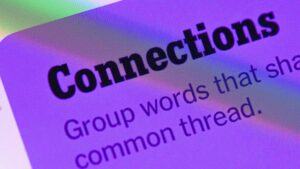
Isaiah Gee vividly recalls the challenging transition from boyhood to manhood. “I was a pretty insecure teenager, afraid of rejection not just romantically but on a larger scale by my peers,” the 22-year-old shared. Gee felt immense pressure from peers and the internet, and even more so from himself, to embody a hyper-masculine identity in order to gain acceptance while suppressing his identity as a person of color.
Attending an all-boys school, Gee found himself surrounded by constant displays of masculinity. “Whether that was how many girls you could meet, or how loud you could be, how good you were at school or how disruptive you could be,” he explained. Mikey D, now 27, experienced similar pressures that extended into his early adulthood, leading him to online spaces for answers.
“I just wanted help with getting a girlfriend and getting women to notice me as a young man, so I went online, harmlessly just looking up how to get a girl to respond,” Mikey recounted. However, what began as a harmless search quickly turned into exposure to anger and hatred towards women, fueled by digital platforms often referred to as the “manosphere.” Mikey felt validated by these communities, believing they held the “secrets” to masculinity.
Challenging the ‘Herculean’ Mold of Masculinity
Young people’s perceptions of male behavior, relationships, and the influence of social media have been explored in a significant new report. The Adolescent Man Box Study by Jesuit Social Services reveals that while many teenagers reject traditional views of masculinity, some boys still adhere to rigid ideas that affect their well-being and behavior.
“Overwhelmingly, boys told us that they want a more gender-equal world,” stated Matt Tyler, executive director of the Men’s Project at Jesuit Social Services. However, the survey paints a concerning picture for those who endorse traditional views. It found that 44% of teenage boys personally agreed they must always appear confident, while 43% believed they should appear strong regardless of circumstances.
“Those young men [that personally endorse these beliefs] are more likely to support attitudes that condone violence against women, self-report sexual harassment, and retaliate when they’re rejected,” Tyler explained.
Both Isaiah and Mikey have since shed the pressures and influences they felt as younger men. “I think what masculinity is turning into today is kind and empathetic and having really strong friendships … and to exhibit a lot of love and softness and curiosity,” Isaiah said, crediting his shift in perspective to leaving his all-boys high school and forming genuine friendships with women at university.
Warnings of Pornography’s Impact
The Adolescent Man Box report highlights the influence of pornography on young men’s perceptions of relationships and expectations regarding sex. It found that 59% of adolescent boys had viewed pornography, with around half viewing it monthly or more.
“Increasingly, the pornography that adolescents are viewing is violent, it’s depicting choking and other deeply degrading acts of women,” Tyler noted. “This is influencing adolescents’ perspectives of relationships as well as what’s expected with regards to sex.”
Isaiah admitted turning to pornography for answers during his teenage years, which he described as having a “catastrophic” impact on his early dating experiences and mental health. “It definitely distorted my perception of women generally,” he said.
Addressing Rejection and Anger
A key takeaway from the report is the need for better support for young men in dealing with rejection. “The idea that, at times in your life, you’ll be told no, and how you respond in those mad moments,” Tyler emphasized.
Mikey expressed that guidance on handling rejection would have been beneficial during his youth. “What would have really benefited me as a young man would have been kind of guided through how to deal with that rejection,” he said.
“Young men, we tap into anger pretty quickly … for me it was just internally angry, ‘Oh you’re stupid for acting that way, for saying those things or putting your heart out there’ and it would all turn inwards,” Mikey shared.
In his current role as a DJ, Mikey observes the dynamics between young men and women in nightclub settings. “The Herculean man that we were sold to as the dream of what women longed for, I am seeing more and more get rejected in the club scene,” he noted.
Role of Parents and Leaders
Experts stress the importance of parental and community involvement in guiding young men. “We asked boys who they are turning to in terms of seeking advice online: over 400 different online content creators came up … few were mentioned more than once,” Tyler said.
The report underscores the need for parents to educate themselves on contemporary issues affecting adolescents, such as violent pornography and digital surveillance. Professor Kate Fitz-Gibbon, an expert in gender-based violence at Monash University, emphasized the importance of teaching boys to handle rejection safely.
“We hear from adolescent boys that they don’t feel comfortable to seek help from services, or from family and friends or at school,” Fitz-Gibbon said. “How are we teaching them to sit in the discomfort of being told no, but to do so safely, and to do so in a way that doesn’t put others at risk?”
Mikey sees positive changes in the men around him and stresses the power of role models. “When there’s good men in the club role-modelling great behavior, the younger men are following suit,” he said.
As society continues to grapple with evolving definitions of masculinity, the voices of young men like Isaiah and Mikey highlight the need for a broader conversation about gender roles and expectations. Their stories serve as a reminder of the importance of empathy, understanding, and the courage to challenge outdated norms.







